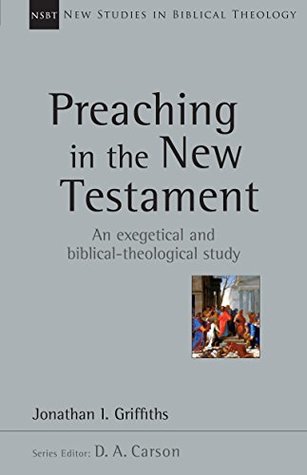With very few exceptions within the New Testament, kēryssō is used in contexts indicating that it speaks of the public proclamation of an authoritative message by a person of recognized authority. This pattern resonates strongly with the use of the term in the Septuagint, where typically (and quite consistently) it is used to signify the public proclamation of an urgent message by a person of authority (usually someone of delegated authority: the herald of a ruler of Israel or of a foreign nation, or, frequently, a prophet of God).45 It
Welcome back. Just a moment while we sign you in to your Goodreads account.


